"Babichev's the name, house superintendent," he said, breathing out the fumes of home-made vodka, "from house number 24 on Pushkarskaya Street, cooperative house."
"Did you bring this package?"
"Yes, I brought it. From apartment No. 13___ That's not in the main building, it's in the annexe. The occupant hasn't been seen for two days. Today I called the police, forced open the door, and made out an affidavit in accordance with the law." The house superintendent covered his mouth with his hand, his cheeks flushed red, his eyes rolled and filled with tears and the room was inundated with the odour of cheap spirit. "That packet I found extra, in the stove."
"What was the occupant's name?"
"Ivan Alexeyevich Savelyev."
Shelga opened the packet. Inside he found a photograph of Pyankov-Pitkevich, a comb, a pair of scissors and a bottle containing a dark liquid, hair dye, apparently.
"What was Savelyev's business?"
"Something scientific. When something went wrong with the ventilator the house committee asked him to fix it. Td be glad to,' he said, 'only I'm a chemist!' "
"Was he often away from home at night?"
"At night? No, not as far as I know." The house superintendent covered his mouth again. "But he always left the house at daybreak, that's true. But night, no, I never noticed it and I never saw him drunk."
"Did he have visitors?"
"I never saw any."
Shelga phoned the police division in the Petrograd District and was informed that in the annexe of house No. 24 on Pushkarskaya Street, there lived Ivan Alexeyevich Savelyev, thirty-six years of age, chemical engineer. He had taken up residence on Pushkarskaya Street in February and had presented identification papers issued by the Tambov police.
Shelga sent a telegram to Tambov for further information and then went with the house superintendent to the Fontanka Police Department where the body of the man murdered on Krestovsky Island lay on ice in the morgue. The house superintendent immediately identified him as the occupant of apartment No. 13.
At approximately the same time, the man who had called himself Pyankov-Pitkevich drove in a closed cab to an empty lot in the Petrograd District, paid off the cabby and continued his way on foot. He opened the gate in a fence, crossed the yard to the back entrance of a house and mounted the narrow staircase to the fifth floor. He opened the door with two keys, hung up his hat and coat on the only hook in the entrance hall, entered a room where the four windows were whitewashed half-way up, sat on a shabby sofa, and covered his face with his hands.
It was only here, in this solitary room (furnished with bookcases and physical apparatus), that he could at last give vent to that terrific nervous excitement, almost despair, that had held him in its grip for the last two days.
The hands pressed against his face trembled. He realized that he was still in mortal danger. He was surrounded on all sides. There was just one chance in his favour, ninety-nine against. "How careless, ach, how careless," he whispered.
By the exercise of great will power he got his nerves under control, jabbed his fist in the dirty pillow, lay down on his back, and closed his eyes.
He allowed his overburdened mind to rest from the terrible strain. A few minutes of deathlike stillness revived him. He got up, poured out a glass of Madeira, and drank it in one gulp. As the wave of warmth spread through his body he began walking up and down, calmly and unhurriedly, seeking the slightest possibility of salvation.
With great care he pulled up the old wall-paper where it had parted company with the wall near the wainscotting and drew out from behind it a number of drawings that he rolled up carefully into a tube. He took a few books out of the bookcase and together with the drawings and parts of some physical apparatus packed them in a suitcase. Listening carefully as he went, he took the suitcase down to one of the cellars used for storing firewood and hid it under a pile of rubbish. Returning to his own room, he took a revolver from the drawer of his desk, examined it, and stuffed it into his hip pocket.
It was a quarter to five. He lay down again and smoked one cigarette after another, throwing the butts into a corner of the room. "Of course they haven't found it!" he almost screamed, threw his legs off the sofa and again began pacing the room diagonally from corner to corner.
At dusk he drew on heavy, clumsy top-boots, donned a sail-cloth coat and went out.
The police officer on night duty in the 16th Division was called to the telephone at midnight. Somebody speaking in a great hurry said:
"Send a squad car immediately to Krestovsky Island, to the house where the man was murdered the day before yesterday."
The voice broke off suddenly. The police officer swore into the mouthpiece, checked up on the call, found that it came from the rowing school, and rang through there. The bell rang for a long time before a sleepy voice answered:
"What do you want?"
"Did somebody just ring up from there?"
"Yes," answered the voice with a yawn.
"Who rang up? Did you see him?"
"No, I didn't, there's something wrong with the electricity here. He said he had instructions from Comrade Shelga."
Half an hour later four policemen jumped out of a squad car outside the boarded-up cottage. The last glow of the setting sun made a crimson patch beyond the birch grove. Faint groans broke the silence. A man in a sheepskin coat lay face downwards near the back door of the house. They turned him over—it was the watchman. Beside him lay a handful of cotton-wool saturated with chloroform.
The back door was wide open, the lock smashed. When the police entered the house they heard a voice calling faintly from under the floor:
"The trap-door, clear the trap-door in the kitchen..."
Tables, boxes, and heavy bags were piled up against the wall. They threw them aside and opened the cellar flap.
Out of the cellar scrambled Shelga, with wild staring eyes, all covered in dust and cobwebs.
"This way, quick!" he shouted, disappearing through a door. "Bring a light, quick!"
In the room with the iron bedstead, by the light of the policemen's flash-lights, they saw two revolvers (both had been fired) and a velvet cap lying on the floor; everywhere there were disgusting traces of vomit that gave off an acrid smell.
"Careful!" shouted Shelga. "Don't breathe, get out of here, that's deadly..."
Backing out and pushing the policemen towards the door he looked with horror and repugnance at a little metal tube, no bigger than a man's finger, that lay on the floor.
Like all big businessmen, Chemical King Rolling engaged a special office in which to receive business visitors, where they were filtered by his secretary who established their degree of importance, read their thoughts, and answered all questions with exaggerated politeness. A typist converted into pearls of human speech all Rolling's ideas, which (if we take the arithmetical average for the year and multiply it by a financial equivalent) were valued at about fifty thousand dollars for each fraction of an idea expounded by the king of inorganic chemistry in the course of one second. The almond finger-nails of four typists hovered incessantly over the keys of four Underwoods. The messenger-boy appeared the instant he was called like the coagulated material of Rolling's will.
Rolling's office on the Boulevard Malesherbes was a gloomy establishment of serious aspect. The walls were hung with dark material, there was a thick dark carpet on the floor and the furniture was upholstered in dark leather. On the dark glass-topped tables lay collections of advertisements, reference books in brown morocco and the prospectuses of chemical plants. A few rusty gas shells and a trench mortar brought from the field of battle decorated the mantelpiece.
Читать дальше
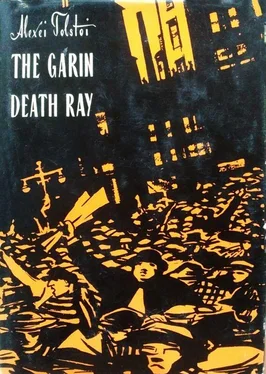
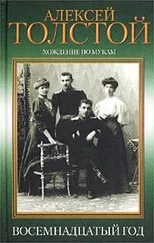

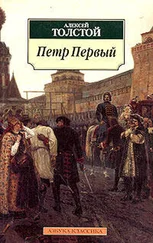
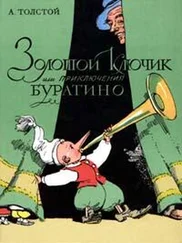
![Алексей Николаевич Толстой - Хождение по мукам [litres]](/books/26263/aleksej-nikolaevich-tolstoj-hozhdenie-po-mukam-litr-thumb.webp)
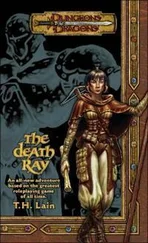

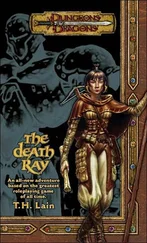


![Алексей Николаевич Толстой - Гиперболоид инженера Гарина. Аэлита [Художник Г. Зубковский]](/books/423486/aleksej-nikolaevich-tolstoj-giperboloid-inzhenera-ga-thumb.webp)
